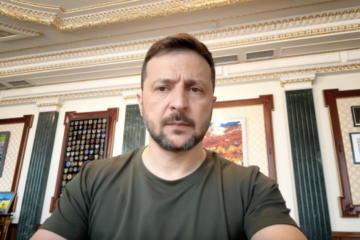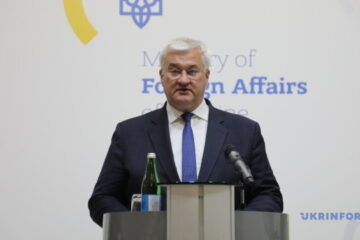
In recent years, the activities of the Hungarian leadership have posed serious threats to the national security of Ukraine, other European neighbors, and Europe as a whole.
This was reported to Ukrinform by sources in Ukraine’s intelligence agencies.
The biggest threat is related to the growing destructive influence of Budapest on Ukraine, which is taking place in four directions, the sources say.
The first is the involvement of Hungarian companies in financing Russia’s war against Ukraine. In particular, one of the banking institutions serves enterprises of the Russian military-industrial complex, whose activities are related to the modernization and repair of electronic warfare and radio communications equipment.
The second is the formation of mechanisms for the financial dependence of members of the Hungarian minority on Hungarian budgetary funds in order to further use these persons in the interests of Budapest.
The third is the concealment and use of persons involved in criminal proceedings in Ukraine to realize anti-Ukrainian intentions.
The fourth area, which threatens EU members as well, is related to the fact that Hungary actually allows Russian special services to use its territory for work aimed at Ukraine and European states.
Members of the European Parliament and representatives of the European Commission have repeatedly stated the threats posed by relaxing the requirements for Russian citizens to enter Hungary, intelligence sources recall.
“The peculiarity of Budapest’s current policy is that it synchronizes its foreign policy with the interests of the Kremlin. Although the Hungarian authorities are trying to justify their position by the need to restore the allegedly violated rights of the Hungarian minority in the Transcarpathian region, intelligence sources claim that there is well-established high-level communication and coordination between Hungary and Russia,” the sources said.
The results of such coordination, according to the intelligence sources, are the Hungarian government’s holding of “national consultations” on Ukraine’s accession to the EU, blocking assistance to Ukraine in repelling Russian aggression, preventing the introduction of new sanctions against Russia, and lobbying for the lifting of sanctions against certain Russian oligarchs and their families.
The intelligence service believes that the Kremlin is thus “trying to turn Hungary and its leadership into one of its tools to destroy the Ukrainian state.”
As Ukrinform reported, EU High Representative for Foreign Affairs and Security Policy Kaja Kallas said in an interview with the Financial Times that the European Union has developed an action plan in case Hungary vetoes the extension of anti-Russian sanctions in July.
On April 30, it became known that Budapest did not join the Joint Declaration of the 10th Summit of the Three Seas Initiative in terms of supporting Ukraine and condemning Russian aggression and the need to punish those responsible for Russian crimes. In a separate opinion attached to the declaration, Hungary emphasized that it could not agree with paragraphs 4-9, as some of its wording “goes beyond the new geopolitical circumstances.”
On April 10, Adam Szlapka, Minister for European Union Affairs of the EU Presidency of Poland, said during the EU-Ukraine Business Forum in Brussels that Hungary continues to block the start of negotiations with Ukraine on the first negotiating cluster “Fundamentals” and that the chances of its opening by June 30, when the Polish presidency of the EU is coming to an end, have “greatly diminished.”
In an interview with Radio Svoboda, European Commissioner for Enlargement Marta Kos said that Ukraine has done enough to protect the rights of national minorities, so a way must be found to convince Hungary to allow the opening of the first cluster in the negotiations on Ukraine’s accession to the EU.
On April 29, Deputy Prime Minister for European and Euro-Atlantic Integration and Minister of Justice Olha Stefanishyna arrives on a working visit to Hungary, where she met with Hungarian Deputy Foreign Minister and Parliamentary Secretary of State Levente Magyar.
Stefanishyna emphasized the priority of finding a common solution to the issue of observance of the rights of persons belonging to national minorities (communities) for the Ukrainian government, as well as the importance of direct dialogue with Hungary and the development of good neighborly relations.
It was noted that the next round of expert-level consultations will be held in Uzhhorod, Ukraine, on May 12, 2025.
Source: Intel warns of challenges and threats to pro-Russian activities by Hungarian authorities



